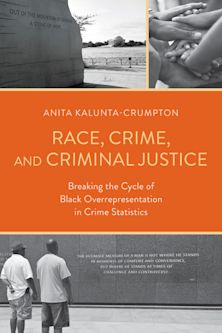- Home
- ACADEMIC
- Criminology
- Criminology - Other
- Policing and Social Media
Policing and Social Media
Social Control in an Era of Digital Media
Policing and Social Media
Social Control in an Era of Digital Media
This product is usually dispatched within 1 week
- Delivery and returns info
-
Free US delivery on orders $35 or over
You must sign in to add this item to your wishlist. Please sign in or create an account
Description
Policing and Social Media: Social Control in an Era of Digital Media investigates various public aspects of the management, use, and control of social media by police agencies in Canada. This book aims to illustrate the process by which information technology—namely, social media—and related changes in communication formats have affected the public face of policing and police work. Christopher J. Schneider argues that police use of social media has altered institutional public police practices in a manner that is consistent with the logic of social media platforms: policing is changing to include new ways of conditioning the public, cultivating self-promotion, and expanding social control. Every chapter in this second edition has been updated with contemporary examples and analysis. Each case study presented here focuses on a different social media platform or format while at the same time developing suitable analytical and methodological approaches for understanding contemporary policing practices on social media sites.
Table of Contents
Chapter 1: Media Formats and Police Social Control Practices
Chapter 2: Crime and Society 2.0: Police and Social Networking
Chapter 3: Facebook and the 2011 Vancouver Riot
Chapter 4: Police Presentational Strategies on X/Twitter and TikTok
Chapter 5: Police Caught on Camera: Framing the Death of Sammy Yatim
Conclusion: Policing on Social Media
Product details
| Published | Oct 31 2024 |
|---|---|
| Format | Hardback |
| Edition | 2nd |
| Extent | 222 |
| ISBN | 9781666962741 |
| Imprint | Lexington Books |
| Illustrations | 2 BW Illustrations |
| Dimensions | 9 x 6 inches |
| Publisher | Bloomsbury Publishing |
About the contributors
Reviews
-
“Christopher J. Schneider’s foundational book deals with ongoing changes that have punctuated the last few years in public-facing police work on social media. This second edition provides updated and revised materials and suggests what might emerge related to the continued police adaptation of digital media. This book is a must read. Schneider’s book gives us a pathway for teaching the evolution of policing on social media.”
Peter K. Manning, senior fellow at the Garfinkel Archive
-
A revised and updated edition of Policing and Social Media is to be hugely welcomed. The first edition was an outstanding success, filling a void in the field. Since the book’s arrival, the importance of this subject has only grown, being central to practical policing, its representation, and the understanding and consumption of police services by citizens. The addition of new material on social media such as TikTok brings this volume right up to date and consolidates its position as leader in the field.
Tim Newburn, professor of criminology and social policy, London School of Economics
-
The second edition of Christopher J. Schneider’s groundbreaking book takes studies of the complex symbiosis between police and media into the era of Facebook, X (formerly Twitter), YouTube, and, importantly now, TikTok. The multiple perspectives of its case studies reveal how the logic of social media continues to transform police practices, not only creating new challenges for police but also new openings for social control strategies.
Aaron Doyle, Carleton University
-
This book is a critical read for students, researchers, police practitioners, and policymakers interested in understanding how social media impacts police and policing strategies. The case studies detailed in the book prove that contemporary police reform efforts must reckon with the influence of social media.
Xiaochen Hu, Fayetteville State University; co-author of Electronic Community-Oriented Policing

ONLINE RESOURCES
Bloomsbury Collections
This book is available on Bloomsbury Collections where your library has access.



































